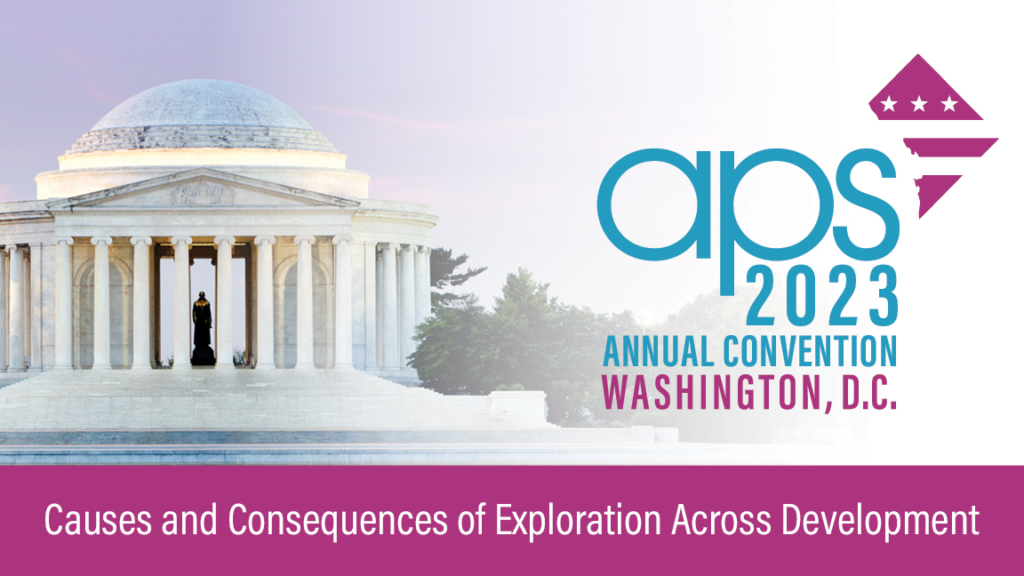Keynote Address: Causes and Consequences of Exploration Across Development

Please log in to view this content. Note that this video is only available to those who registered for APS 2023 or APS members who purchase access.
Throughout our lives, we constantly face decisions of whether or not to engage with novel or uncertain aspects of our environments. Ecological studies of animal behavior and laboratory studies of humans suggest that how we make these decisions to explore exhibits systematic changes across the lifespan, but the causes of these developmental changes, as well as their consequences, are not well-characterized. In this talk, Hartley presents studies of individuals navigating both laboratory tasks and real-world environments that highlight the tight coupling between novelty-seeking and affective states, and the differential effects of novelty and uncertainty on exploration across development.
Speaker:
Catherine Alexandra Hartley, New York University
ICPS 2023 Videos
-

Keynote Address: Integrating Knowledge in Psychological Science Using Ontologies
Susan Michie presents the “Behaviour Change Intervention Ontology,” which has the potential to dramatically enhance evidence integration and knowledge development using hybrid human-computer systems, thereby accelerating scientific advancements.
-

Keynote Address: The Human Quest for Fairness and Equality: Evolutionary Origins and Socio-Political Consequences
Ernst Fehr shows that individuals cluster around three global, fundamentally distinct, preference types characterized as altruistic, inequality averse, and predominantly selfish—with the selfish type typically comprising a minority of individuals.
-

Keynote Address: Blood, Sweat, and Tears: Human Social Chemosignaling in Health and Disease
Noam Sobel describes his findings on mechanisms of human chemosignaling in both health and disease. Based on these findings, he argues that, in contrast to common notions, humans are highly olfactory animals, and body-odors dominate our social behavior.





APS regularly opens certain online articles for discussion on our website. Effective February 2021, you must be a logged-in APS member to post comments. By posting a comment, you agree to our Community Guidelines and the display of your profile information, including your name and affiliation. Any opinions, findings, conclusions, or recommendations present in article comments are those of the writers and do not necessarily reflect the views of APS or the article’s author. For more information, please see our Community Guidelines.
Please login with your APS account to comment.